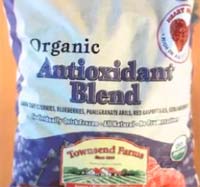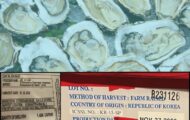 The rare strain of hepatitis A associated with frozen berries sold at Costco was also the source of a frozen berry hepatitis A outbreak in Europe earlier this year and in British Columbia in 2012. According to the Centers for Disease Control and Prevention (CDC) and state health departments, the strain hepatitis A genotype 1B has sickened at least 32 people in six states since the end of April. But because the outbreak was not announced until the end of May and because symptoms can take between two to seven weeks after exposure to develop, the case numbers are likely to increase.
The rare strain of hepatitis A associated with frozen berries sold at Costco was also the source of a frozen berry hepatitis A outbreak in Europe earlier this year and in British Columbia in 2012. According to the Centers for Disease Control and Prevention (CDC) and state health departments, the strain hepatitis A genotype 1B has sickened at least 32 people in six states since the end of April. But because the outbreak was not announced until the end of May and because symptoms can take between two to seven weeks after exposure to develop, the case numbers are likely to increase.
A hepatitis A vaccination can prevent illness if given within two weeks of exposure to the contaminated product. Anyone who has eaten these berries within the last two weeks should contact a health care provider to find out about the vaccination.
For the 32 people in Arizona, California, Colorado, Hawaii, Nevada and New Mexico who have already been diagnosed with acute hepatitis A in this outbreak, onset of illness ranged from April 29 2013 to May 17 2013. At least nine of these patients have required hospitalization. Medication cannot cure the infection or lessen the severity of the illness, according to the CDC.
Symptoms of hepatitis include fatigue, abdominal pain, yellow skin or eyes, abnormal liver tests, dark urine, and pale stools. See a doctor right away if you have these symptoms.
In British Columbia, eight cases of hepatitis A genotype 1B were associated with Pomeberry Blend frozen berries made by Western Family between February and April 2012. That berry blend, distributed by Save-On-Foods and Overwaitea, contained frozen pomegranate seeds, blueberries, strawberries and cherries. Although health officials did not establish a direct link to the berries, they warned consumers not to eat them as a precaution.
In Europe, dozens of cases of hepatitis A genotype 1B have been associated with frozen berries in recent months. Between October 1 2012 and April 17 2013, frozen berries served in smoothies were associated with 71 cases of hepatitis A in Denmark, Sweden, Norway and Finland.
Two other travel-related hepatitis A outbreaks are being investigating in Europe. One affected travelers to Egypt from Denmark, Germany, the Netherlands, Norway, Sweden and United Kingdom. In the other, at least 15 laboratory-confirmed cases of hepatitis A infection were eported in Germany, the Netherlands and Poland, since January 1, 2013. Those cases were all associated with frozen mixed berries and travel to provinces of Trento and Bolzano in northern Italy.




